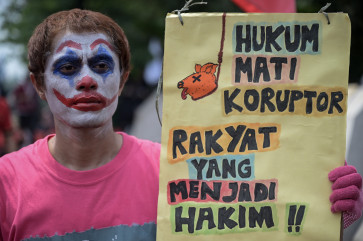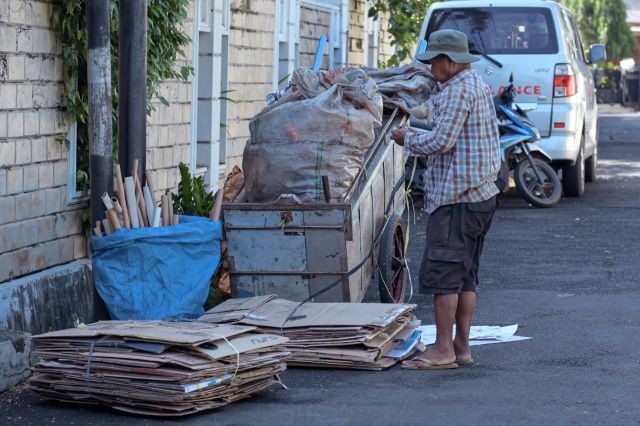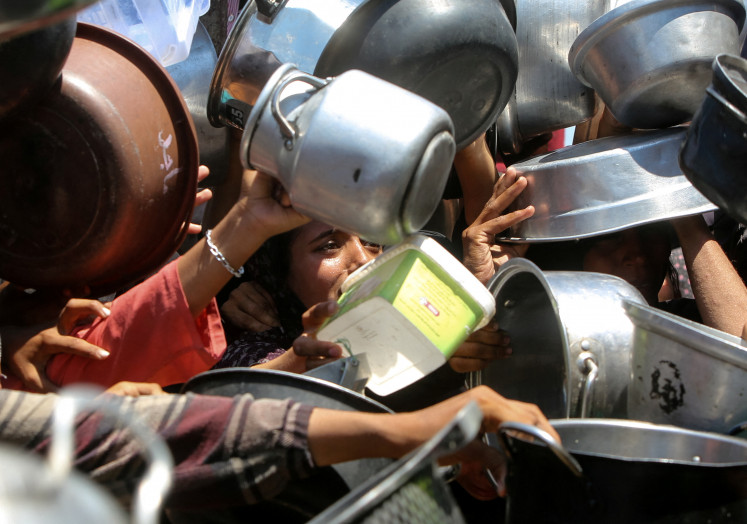Popular Reads
Top Results
Can't find what you're looking for?
View all search resultsPopular Reads
Top Results
Can't find what you're looking for?
View all search resultsAdopting juvenile turtles for conservation
The Family of Gadjah Mada University Alumni Virtual (Kavir), together with local communities around Pandansimo Baru Beach, Bantul, Yogyakarta, has launched a juvenile turtle adoption program to conserve Olive Ridley sea turtles, which are gradually disappearing from the coastal area
Change text size
Gift Premium Articles
to Anyone
T
he Family of Gadjah Mada University Alumni Virtual (Kavir), together with local communities around Pandansimo Baru Beach, Bantul, Yogyakarta, has launched a juvenile turtle adoption program to conserve Olive Ridley sea turtles, which are gradually disappearing from the coastal area.
The program, which was launched in 2013, encourages local people to help hatch turtle eggs and Kavir will buy the juvenile turtles, locally known as tukik, for Rp 15,000 (US$1.28) each.
'We guarantee that we will adopt all baby turtles to save turtles that have almost become extinct,' the program's coordinator, Muhammad Munir, during the release of juvenile turtles on Tuesday.
Local people will use the money they receive from the program to fund the hatching of eggs, he added.
Sea turtle nesting and hatching are the easiest activities to conserve the species. On Pandansimo Baru Beach, the dog is a common predator of turtle eggs. However, the biggest threat to sea turtles is people who hunt and trade their eggs.
In 2013, about 300 juvenile turtles were released into the sea and this year, the number might be higher because as of August, more than 300 baby turtles have been released into their natural habitat.
'We still have about 300 turtle eggs in two hatching nests,' said Munawar.
Sea turtle conservation groups have also operated at Samas Beach, Bantul, since 2001. In the last two years, however, local people have been unable to hatch turtle eggs because abrasion has damaged conservation facilities in the area.
'We used to pay Rp 20,000 for each turtle egg people found and hatched. In the last three years, however, there have been no turtle eggs on Samas Beach because people stole and sold them,' said Rudjito, the head of a turtle conservation group at Samas Beach.
He said Gembira Loka Zoo had provided conservation facilities, but nesting and hatching activities could not yet run optimally.
'To save turtle eggs, we have to allocate funds to compensate people who find and help hatch the eggs,' said Rudjito, adding that sea turtles played a crucial role in maintaining the balance of the ecosystem. (ebf)










